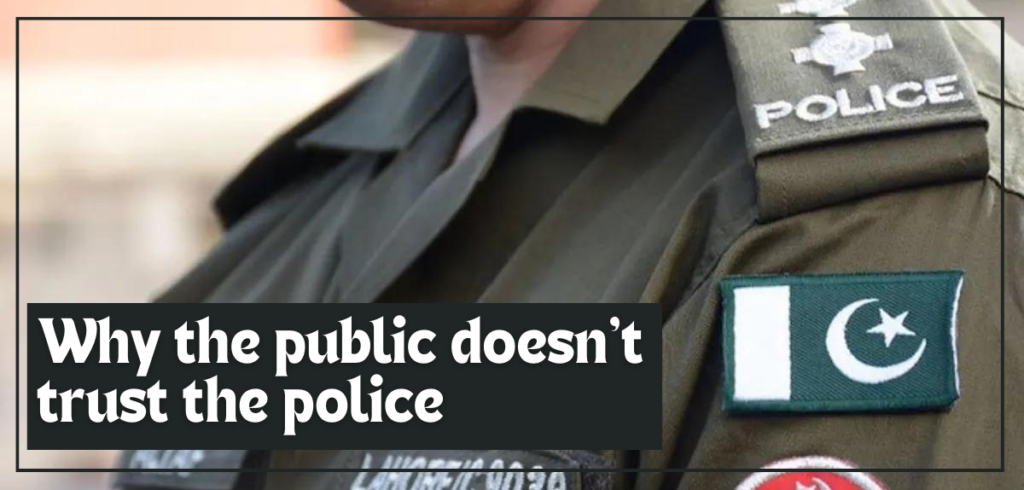The public frequently criticizes the Pakistani police for their lack of skill, justice, and trustworthiness. Just 15% of Pakistanis indicated they trusted the police in a recent survey. The police find it challenging to investigate crimes, deter crime, and uphold public order, among other detrimental effects of this lack of trust.
The Pakistani police are not trusted by the populace for a variety of reasons. The perception of the police as corrupt is one factor. Eighty percent of Pakistanis responded in favor of the police being corrupt in the same survey. A lot of the time, this perception of corruption is grounded in actual events. For instance, a lot of Pakistanis have complained about police asking them for money.
The perception of the police as being biased against particular groups of people is another factor contributing to the public’s lack of faith in them. For instance, a lot of Pakistanis who are poor and disadvantaged think that the police are more likely to arrest and harass them than to keep them safe. Many times, this perception is derived from actual experiences. For instance, there are many accounts of police harassing and mistreating the poor.
The perception of the police as ineffectual is another reason why the public lacks faith in them. According to the same survey, only 20% of Pakistanis thought that crime could be effectively prevented by the police. A lot of the time, this impression of ineffectiveness is grounded in actual events. For instance, a lot of people in Pakistan have complained that the police are unable to solve crimes that are reported to them.
There are several detrimental effects of the public’s lack of trust in the police. One effect is that it becomes more challenging for law enforcement to look into crimes. People are less inclined to report crimes to the police when they lack confidence in them. It becomes harder for the police to solve crimes as a result of having fewer incidents to look into.
It also makes it more difficult for the police to prevent crime, which is another effect of public mistrust in the police. People are less likely to collaborate with the police when they don’t trust them. As a result, it becomes more challenging for the police to identify possible offenders and obtain information regarding crimes.
The police also find it challenging to uphold public order as a result of the public’s lack of trust in them. People are less inclined to follow police orders when they don’t trust them. Protests and other acts of civil disobedience may result from this.
What can be done to improve public trust in the Pakistani police?
The public’s confidence in the Pakistani police can be increased in a number of ways. Reducing corruption in the police force is one action that can be taken. Increasing accountability and openness within the police force is one way to achieve this. It’s critical to make dishonest police personnel responsible for their deeds.
Reducing bias within the police force is another way to boost public confidence in the Pakistani police. Police officers can be trained to prevent bias in order to achieve this. Holding police officials responsible for any prejudiced actions is also crucial.
Additionally, the Pakistani police must do a better job of deterring crime. Increasing police presence in high-crime neighborhoods is one way to do this. Enhancing the standard of police training is also crucial.
Lastly, there is a need for Pakistani police to communicate better with the general populace. Regular meetings with community groups and increased responsiveness to public grievances are two ways to achieve this.
By taking these steps, the Pakistani police can improve public trust and build stronger relationships with the communities they serve.

